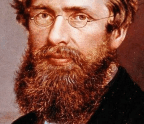How Napoleon (almost) destroyed the French Revolution


On 10 November 1799, Napoleon Bonaparte stormed into the chambers at the Chateau de Saint-Cloud in the suburbs of Paris and set in train a military coup. “The republic no longer has a government,” he declared to the assembled members of one of France’s two ruling councils. “Together let us save the cause of liberty and equality.”
The coup represented an enormous gamble for Bonaparte but it paid off spectacularly: within a matter of days, he had been declared First Consul of his nation. Bonaparte was now the most powerful figure in France – and hardly anybody had seen it coming. But one man had, and his name was Maximilien Robespierre.
When revolutionary France had embarked on a war with its royalist neighbours in April 1792, Robespierre warned of the dangers that would follow. A military leader could, the leading Jacobin revolutionary counselled, take the opportunity to seize political power in Paris, becoming another Julius Caesar, another Oliver Cromwell.
Robespierre’s warnings were disregarded, but they proved prescient. The ensuing war would last a generation. It brought to prominence several talented young generals with the potential to become a second Caesar. In the end the man who came out ahead was the young Corsican general who burst into the Chateau de SaintCloud in November 1799: Bonaparte.
For many historians, the coup of November 1799 signalled the end of one of the great step-changes in European history: the French Revolution. Erupting in 1789, the revolution had shaken the old order based on the authority of king, nobles and clergy to its core. It also brought into being a raft of new political ideals: individual liberty, equality before the law, freedom of speech and religious toleration. The revolution was the first of its kind
You’re reading a preview, subscribe to read more.
Start your free 30 days



